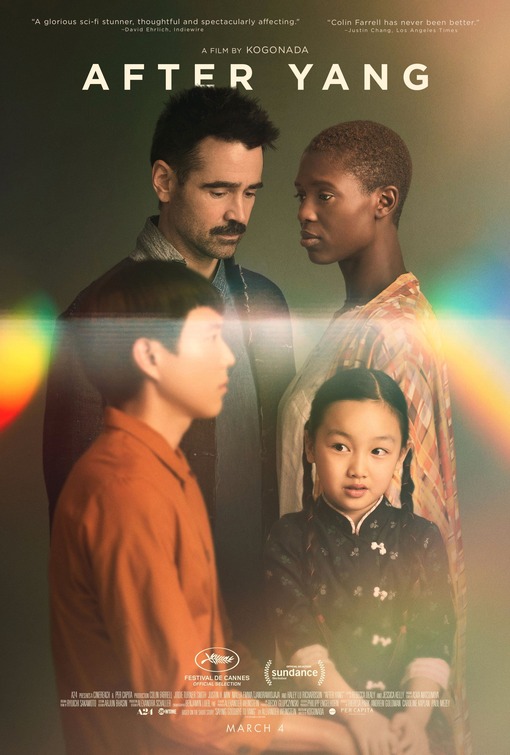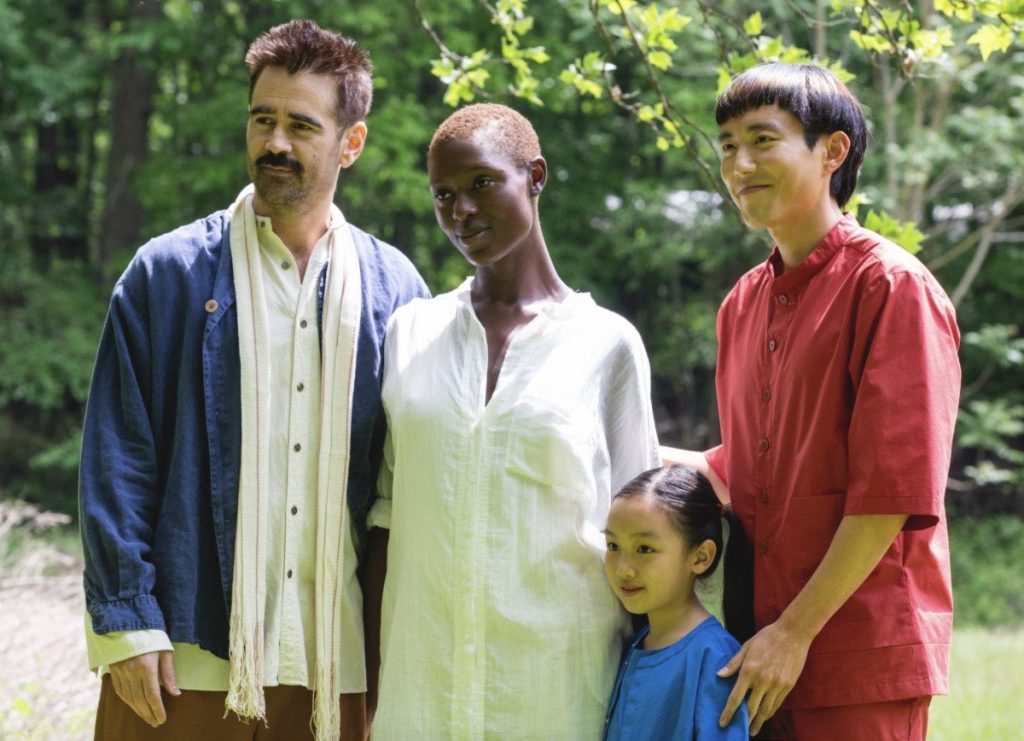
A minimalist sci-fi flick from A24 Films about an artificially intelligent robot that coexists with people featuring an incongruous dance routine, I’d have said you described Ex Machina to a T. Not so fast. Alex Garland’s 2015 release has a spiritual cousin in After Yang. However, that is where the similarities end.
After Yang‘s boogie moment pops up early on. It happens during the credits which occur after a 4-minute opening intro. Apparently, families of the future compete in virtual competitions. This is recreation, like playing “Dance Dance Revolution” in your living room. More than 30,000 households are competing across the globe. “Level one complete. 3,000 families eliminated,” a woman’s disembodied voice flatly declares. The captivating sequence suggests a tale about a dystopian society where people are literally terminated for not performing choreography with meticulous precision. Sadly it was not meant to be. This is nothing more than a playful introduction to the cast.
The drama concerns an android purchased by parents Jake (Colin Farrell) and Kyra (Jodie Turner-Smith). Yang (Justin H. Min) is what is known as a “technosapien.” He has been programmed to help their adoptive Chinese daughter Mika (Malea Emma Tjandrawidjaja) learn about her cultural heritage. The movie is adapted from the short story Saying Goodbye to Yang by Alexander Weinstein. Then one day, Yang stops working. The malfunction means more than just the loss of a babysitter. He’s also become something of a surrogate son. Yang is still under warranty, but Jake’s traditional attempts to have the appliance repaired are difficult. He bought a refurbished model from a shop that no longer exists. But then a rogue repairman (Ritchie Coster) steps in to help and uncovers some hidden memories of which Jake was unaware. These include a mysterious girl (Haley Lu Richardson). Is there something more sinister afoot? Was “Big Brother” Yang built to spy on the family? Alas, this fascinating idea is not explored either.
What does it mean to be human? South Korean-born writer and director Kogonada (Columbus) considers the age-old question. Then probes further to ask what it means to be “Asian.” Yang is a “cultural techno” that can offer “Chinese fun facts” as part of his educational discourse. Nevertheless, he laments that he feels disassociated from his ethnicity. This is where the movie ultimately shows its hand. After Yang aspires to be a rumination on race, culture, family, and identity. The screenplay has ambitious objectives. The problem is it does little more than suggest those ideas then does absolutely nothing with them. The mood is chilly, spartan, and sterile. Yang is a machine, so his lifeless personality makes perfect sense. Yet the humans are ciphers too, almost catatonic in their inability to express emotion. The actors often contemplate these concepts in darkened spaces and silence. Unfortunately, I do not read minds so I was at a significant disadvantage.
03-08-22


4 Responses
I’ll keep your tepid review in mind but this still is one of those titles I’m really really curious about. I love when Colin Farrell does more off-beat movies (I’m thinking most of The Lobster)
You should definitely check it out. Colin Farrell dominates the movie and it is an offbeat little movie.
The dance scene had me hopeful, but the movie was such a snore. 2 ⭐️
It’s like when you buy an album for the single and discover the rest of the tracks aren’t as captivating. 😞